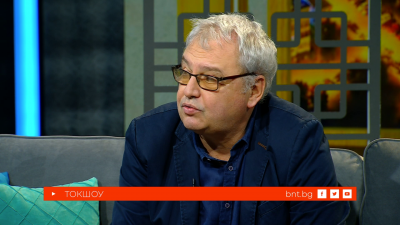Bulgaria's central bank ordered banks to tighten standards in mortgage lending

Bulgarian National Bank (BNB) reported an increase in lending secured by residential real estate and in this regard ordered banks to take additional measures to ensure the security of the financial system. The main reason for the increased demand for such loans is that wages are rising more than real estate prices, the BNB analysis shows.
The annual growth rate of loans secured by housing for the banking system increases from 10.1% at the end of 2020 to 15.0% and 16.1% over the next two years and accelerates to 19.9% at the end of 2023. Banks have not loosened the regime in making such loans and should not do so, the central bank report said.
A decision by the bank's governing board approved the definitions and calculation method of several indicators that banks must comply with. It also introduces quarterly reporting on these indicators. The Central Bank wants lending institutions to apply the following minimum set of indicators very carefully when granting mortgage loans:
- Loan-to-value ratios;
- A ratio between the amount of current payments related to debt service and the monthly income of the borrower at origination;
- Ratio between the amount of current payments in connection with servicing the loan secured by residential real estate and the borrower's monthly income at origination;
- Ratio between the amount of debt and the borrower's annual income at origination;
- Relationship between the loan amount and the borrower's annual income at origination;
- Maximum term of the loan agreement (maturity).
The gross volume of new loans secured by residential real estate amounts to BGN 5.2 billion in 2022 and BGN 5.8 billion in 2023. For the period of the first quarter of 2024, the newly granted loans amounted to BGN 1.7 billion. The main contributors to new lending are large banks, which maintain a share of at least 80%.
In 2023, lending activity for residential mortgage demand strengthens, especially in the last quarter of the year. The rising activity persists into the first quarter of 2024. Nonetheless, the quarterly volume of loan requests approved by banks remained on a smooth upward trend. The share of approved credit requests remained below 50% and even declined to 46% at the end of March 2024.
The implementation of the new monitoring and reporting mechanism aims to formalise the mortgage risk assessment process. The BNB reports that it will take further supervisory action after monitoring the results of these measures.
At its Governing Council meeting, the BNB considered the "Review of macroprudential measures introduced by the BNB in relation to risks to the banking system".
"The analytical material points out that as a result of the BNB's supervisory policy for the systemic building and preservation of buffers in the banking system, resilience has been created in terms of liquidity, capital, efficiency and credit quality," the central bank said in the release.
The BNB's analysis shows that banks are reporting stable growth. The total amount of deposits at the end of 2023 reaches BGN 147 billion, with the deposit growth for the last four years being BGN 50.1 billion, while private sector funding has increased by BGN 43.1 billion, respectively.
Deposit growth has been particularly pronounced in the last two years, which has been marked by annual asset growth and private lending growth of over 10% each. The share in the annual change in total deposits of significant institutions in 2022 and 2023 is 71% and 85%, respectively.
"Despite increased credit market activity, Bulgaria's household sector continues to be characterized by relatively low indebtedness. By the end of 2023, total household credit liabilities (including non-bank) amount to 23.7% of GDP (one of the lowest levels of the household credit-to-GDP ratio among EU countries)," the BNB report says.
Get the latest news wherever you are!
Follow us on
Facebook
and
Instagram
Follow BNT’s YouTube channel
You can now also watch us on
TikTok
Find us on
Google News























